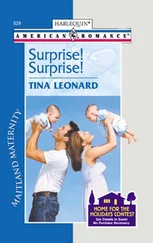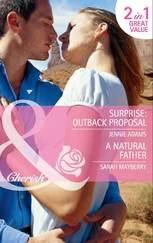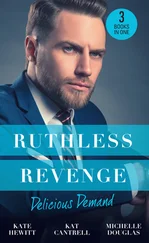Daniel picks up the phone. Anything’s better than following that line of logic. He may have his own trouble leaving the house, but there’s something he still can do. He can talk, schmooze, call in a favor without groveling. There must be some college somewhere that will take him in. It takes an afternoon of talking to people he used to know, but finally his phone calls lead him to Harry Axelrod, fellow failed novelist, former drinking buddy from his early years in New York, and current chair of the English Department at Colorado Plains College in Colorado Springs, wherever that is. Harry can offer him a spot for a semester — one of his teachers is out on maternity leave.
“Sold,” says Daniel, grateful. He’ll worry about the semester after that when it comes.
He tells Stefan they’re moving to Colorado.
“How are you going to get there?” is his son’s first question. “I mean physically get there.”
“You’ll drive me.”
“Whoa! Road trip!”
“Exactly,” Daniel says grimly, anticipating the fifteen hours alone in the car with his son as Stefan fairly dances around the room in anticipation of the same.
September melted into October, then November began, and Isabelle was afraid of the amount of happiness she felt. Can this be real? she asked herself at random quiet moments. Often, while watching Casey sleep beside her, sprawled on his stomach, his face stripped of all but his innate sweetness, she felt compelled to put the flat of her palm on his warm back in order to feel his breath flow into and out of his lungs. Is this real?
One early morning as they were hiking through the centuries-old redwoods of Muir Woods, Isabelle simply stopped, needing to look around her, needing to see so she could remember. Arrows of sunshine, shot from hundreds of feet above them, pierced the haze that clung to the tops of the trees. A living cathedral. Hushed. Simple.
“What is it?” Casey asked her.
“I need to remember how happy I am.”
“Oh, baby,” he said and took her hand, “there’ll be lots more.”
On a Sunday morning in early November, bundled in sweaters over pajamas, their feet in heavy wool socks propped up on the deck railing, sipping their morning coffee, waking up slowly, not a word being spoken, their eyes watching the fog lift across the bay, Isabelle felt it again— Can this be real?
Everything else had fallen away, and rather than feeling unmoored, she felt weightless, able to skim along air currents and never fall.
Casey was a revelation to her. The men she was used to talked and talked. They complained and needled and pugnaciously pursued arguments. Nate would never stop his relentless words until she had agreed that, yes, he had a point, yes, he had figured it all out. And her father, who had spent the summer constructing one long monologue, was always talking, always making his case, always needing her to listen. Even her brothers, whom she adored, created constant noise, shouting over each other, the twins in some kind of inexhaustible contest of one-upmanship since the day they could talk until Aaron, patient Aaron, would shout at them, “Shut up! Shut up! Shut up!”
Words all around her — male sounds, arguments, and grievances. The static of her life. But Casey could be quiet. He could use two words where others would need a paragraph. He would rather touch than talk. Suddenly life was quieter. Peace crept in and took up residence inside her, a tiny corner of stillness, and she was grateful.
What she didn’t realize until it was too late was that there was a price to pay for all this tranquillity. There was a list of things Casey had neglected to mention — that he had no home, that they soon had to vacate this hilltop cottage they were living in, that he had no clue where he was going next. But more important, what he didn’t tell her was that he could be whisked away in a heartbeat, out of the country, across the world for months at a time. He didn’t talk about that possibility until the call came on November 15.
Of course Isabelle had asked Casey about his work. He was proud to tell her about Global Hope, about how they were among the first responders when any disaster struck — when earthquakes devastated villages or hurricanes swept away houses or floods wiped out farmland or famine threatened children. The nonprofit was homegrown, started in Berkeley in the 1960s, when everyone believed they could make the world a better place. Casey believed it still, he told Isabelle. He believed in his obligation to do so.
“I was raised that way,” he says simply one Sunday morning as they are making their way from their tree house down the hill, crossing College Avenue to Bancroft and then down to Goldman Field for one of Casey’s soccer games.
As they walk, Casey has his duffel bag slung over his left shoulder and holds Isabelle’s hand in his right. He doesn’t continue. “I was raised that way” seems enough of an explanation for him.
But Isabelle wants to know more. “Your parents?” she prompts.
“My parents walk the walk,” he says with a shrug. “My dad runs an alternative school in Oakland. Very progressive, sort of Montessoriesque without the dogma.”
“And your mom?” Isabelle thinks quickly of her own mother, who had never been “well enough” to hold a job, the threat of a migraine always hovering somewhere behind her disillusioned eyes.
“She teaches English as a second language at a night school for migrant workers. During the day she lobbies for immigrants’ rights.”
“Wow,” Isabelle says quietly, frankly intimidated. These people all do such good in the world. What has she or anyone in her large, extended, rowdy, raucous Rothman family done that approaches the good Casey’s family does?
“On the other hand…” Casey adds with a grin, to let her know his next comments are meant benevolently, although Isabelle would have taken them that way. She hasn’t experienced a moment yet of meanness or pettiness from Casey.
“You walk into their house and it’s like you’re having a flashback. I mean, you will see actual tie-dye and a framed Woodstock poster and a lava lamp in the bedroom. The sixties have never ended as far as my parents are concerned.”
“But that’s not a bad thing, is it, if they do such good in the world?”
“My sister, Mimi, thinks all three of us are embarrassing.”
“She does?”
“Yep.”
And Isabelle has to ask, “Because of the tie-dye?”
“She thinks we’ve drunk the Kool-Aid or something. That we’re mouthing platitudes. Like we’re as cringe-worthy as recycled clothes or something.” He stops talking, and then the sly grin starts again and Isabelle has no idea what he’s going to say next. “She married an investment banker. They live in Connecticut, and she voted for George H. W. Bush in the last election. My parents had apoplexy. I think that was the point.”
When they reach the soccer stadium, Isabelle spots Deepti immediately. Although she sits demurely in the bleachers, hands folded in her lap, waiting for Isabelle and the game to begin, her aqua sari, the only pop of color amid the steel-gray slats, screams “Here I am!”
Casey seems to stand taller as they cross the grass field, to smile more broadly, to fill up with expectation. Isabelle can tell how eager he is for the game to start.
“I’ll see you afterward,” she tells him, preparing to slip away, to join Deepti and the scattering of spectators in the bleachers, but Casey grabs her wrist and brings her to him. They stand face-to-face, their bodies touching in all the right places, and Isabelle feels a surge of heat.
“Wish me luck?”
“Do you even need it?”
Casey puts his arms around her and kisses her with real hunger. And she kisses him back, her arms around his neck, her hands in his long blond hair, matching his eagerness. She doesn’t care who sees. And then they smile at each other, because they share the only secret worth having in the whole world — that love is wonderful!
Читать дальше












